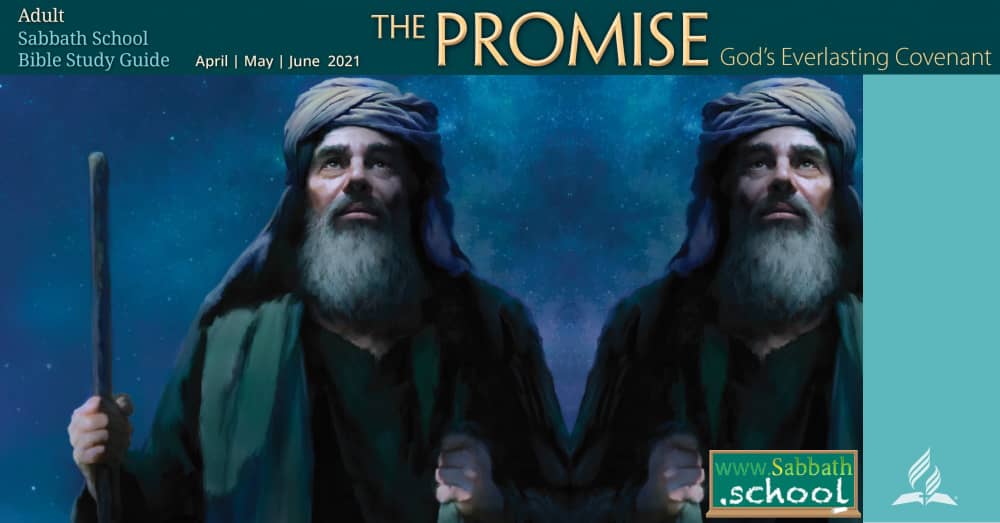
2nd Quarter: The Promise: God’s Everlasting Covenant
Lesson 4 *An Everlasting Covenant*
Sunday: Yahweh and the Abrahamic Covenant
Text: [[Gen 15:7]] BSB
_The LORD also told him, “I am the LORD, who brought you out of Ur of the Chaldeans to give you this land to possess.”_
Message
We read from scripture how God was saddened by the increasing sin of men. Often we picture an angry God looking upon sinful men and waiting for an opportunity to destroy them. But far from this. On the contrary, he was pained, looking for an opportunity to save them rather. This was the condition after the flood, when sin began to increase again. He needed to commit himself that whatever happens, he will not destroy everyone. He took another step that was to assure humanity that his love will never change, but that we can trust him to save us.
To this end, God chose Abram to make a covenant with him and his posterity that was to assure him of his ever presence. We will look at the details of this everlasting covenant this week. First, we have to observe an interesting part of the covenant. When God appeared to initiate this covenant, He introduced himself to Abram as “The LORD”. This name means “the Eternal One,” “the Self-Existing One,” “the Self-Sufficient One,” or “the One who lives eternally.” For inhabitants of the ancient near East, names meant a lot to them. It depicted the persons character, so for God to introduce himself this way to Abram was for a purpose.
Keep in mind God was going to establish an everlasting covenant, and so he needed to show he is unlike any other god. He is one that was there before the beginning, and will be there after the end. By understanding this, Abram could trust that whatever covenant he makes is within scope. Again, God has several names (and attributes), but in this covenant, he introduces himself to Abram with his personal name. This shows a level of intimacy He wanted to build with Abram.
Reflection
God himself explains his name as ‘I Am Who I Am’. This shows God’s unconditioned existence, and rule over past, present, and future. When you think of or hear the name LORD (Yahweh), what traits or characteristics automatically come to mind? What can it teach you today?



